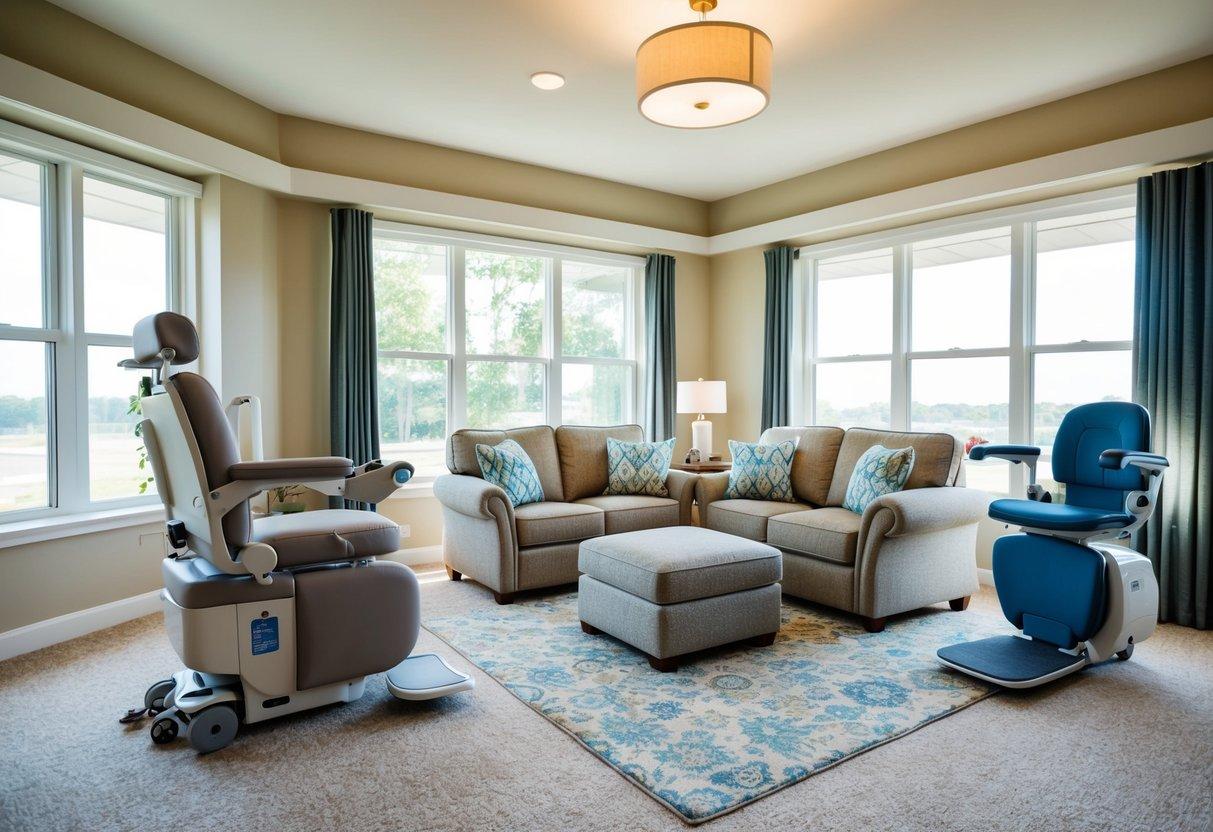Many people seek alternatives to nursing homes due to concerns about cost, independence, or the level of personalized care. Options such as assisted living, home care, and adult day programs offer different levels of support while allowing individuals to maintain varying degrees of autonomy.
Alternatives to nursing homes include in-home care services, assisted living communities, and residential care facilities focused on specific needs. Each choice provides unique benefits depending on health status, social preferences, and financial situations.
Exploring these options can help families find suitable solutions that balance care quality with personal comfort. Understanding what alternatives exist is essential for making informed decisions about long-term care.
Home Care Options
Home care allows seniors to remain in familiar surroundings while receiving support tailored to their needs. These options address daily tasks, medical needs, and
personal care in ways nursing homes often cannot, like providing one-on-one attention and maintaining family interaction.
In-Home Care Services
In-home care
services provide non-medical assistance with daily activities such as meal preparation, housekeeping, transportation, and medication reminders. These services are flexible and can be scheduled for a few hours a day or around the clock.
They allow seniors to stay independent while receiving help that nursing homes typically offer in a more institutional setting. Providers can also arrange companionship to reduce social isolation, something nursing homes may struggle to individualize.
In-home care is ideal for those who do not require intensive medical monitoring but need regular support with routine tasks. Agencies usually conduct assessments to match caregivers to specific client needs.
Family Caregiving
Family caregiving involves relatives or close friends taking responsibility for the senior’s care at home. This option can provide emotional comfort unavailable in nursing homes but requires significant time, effort, and sometimes specialized knowledge.
Family caregivers often assist with medication management, personal hygiene, meal services, and transportation. They may also coordinate with health professionals for medical oversight, but might lack formal training.
Support for family caregivers can include respite care, training programs, and financial aid in some areas. However, caregiving may create physical and mental strain without these resources.
Home Health Aides
Home health aides (HHAs) provide medical-related care such as wound dressing, physical therapy support, and monitoring vital signs. They are usually certified professionals who work under the supervision of a healthcare provider.
HHAs fill a gap that nursing homes cover, but with the advantage of individualized attention at home. They can assist with complex health conditions requiring skilled care, but without relocating the senior.
These aides are essential for seniors with chronic illnesses or recovering from surgery, offering health services that nursing homes provide in a facility but deliver personally at home.
Community-Based Alternatives
Several community-based options provide care and support outside of traditional nursing homes. These alternatives vary in structure and services but focus on maintaining independence and social engagement.
Assisted Living Facilities
Assisted living facilities offer housing, meals, and personal care services for seniors who do not require intensive medical care. Residents receive help with activities of daily living (ADLs) such as bathing, dressing, and medication management.
These facilities often provide social activities, transportation, and 24-hour staff availability. They are suitable for individuals who want some assistance but still value their privacy and independence. Costs typically range between skilled nursing homes and in-home care.
Assisted living can be a long-term or transitional option as health needs evolve.
Adult Day Care Centers
Adult day care centers provide daytime supervision and social activities for older adults. These centers support those who live with family or independently but need daytime care or social interaction.
Services usually include meals, health monitoring, and recreational activities. This option helps reduce caregiver stress by offering respite during work hours or personal time. Transportation may be available, but schedules vary.
Adult day care focuses on promoting social engagement and safety without overnight stays. It is best suited for those with mild to moderate care needs.
Specialized Care Options
Specialized care options target specific needs that general nursing homes may not fully address. These services provide tailored environments and focused support for certain health conditions or temporary care requirements.
Memory Care Communities
Memory care communities serve individuals with Alzheimer’s disease, dementia, or other cognitive impairments. They provide a secure environment designed to reduce confusion and prevent wandering.
Staff members receive specialized training to assist with memory loss challenges. Programs focus on cognitive stimulation, safety, and maintaining routines. Facilities often include locked entries, monitored common areas, and clear signage.
In addition, these communities offer personalized care plans that adapt as the resident’s condition changes. Social activities and therapeutic approaches help support mental and emotional well-being, addressing isolation and frustration common in memory-related conditions.
Respite Care
Respite care delivers temporary relief for primary caregivers by providing short-term care for individuals. This service is useful during planned vacations, health issues, or caregiving burnout.
It can occur in various settings, including in-home care, adult day centers, or short stays in residential facilities. Respite care covers medical, personal hygiene, and companionship needs to maintain continuity in care.
This option allows flexibility in duration, ranging from a few hours to several weeks. It supports both the caregiver’s well-being and the care recipient’s safety without long-term commitment.
Comparing Alternatives to Nursing Homes
Choosing between options like assisted living, home care, or adult day programs involves understanding specific needs and available services. Key factors include medical requirements, social engagement, and daily living assistance. Evaluating the
strengths and weaknesses of each option helps identify the best fit.
Factors to Consider When Choosing Care
Care decisions must account for medical complexity, mobility, and cognitive status. Some alternatives to nursing homes, like home care, offer personalized support but may require family involvement or supervision. Assisted living can provide structured assistance but might lack 24/7 skilled nursing.
Cost and insurance coverage play significant roles. Nursing homes often cover extensive medical monitoring that alternatives may not. However, many alternatives to nursing homes excel in social interaction and comfort, addressing issues nursing homes often struggle with, such as personalized living environments and autonomy.
Accessibility and emergency response capabilities vary widely. Nursing homes have immediate medical attention on-site; alternatives rely on external services. It’s essential to weigh these factors against the individual’s health and lifestyle preferences.
Benefits and Limitations
Assisted living provides social activities and helps with tasks like medication, but lacks intensive medical care. Home care supports independence but may limit social opportunities and require coordination for medical needs.
Adult day programs offer community engagement and health services during daytime hours, but require someone to transport the individual. Compared to nursing homes, alternatives typically do not provide the same level of continuous care or manage complex health conditions like wound care.
Many alternatives to nursing homes allow residents to remain in familiar surroundings and improve emotional well-being,
things nursing homes cannot do. However, they may not handle emergencies as efficiently or provide the full spectrum of nursing services found in nursing homes, such as 24-hour supervision or specialized rehabilitation.







